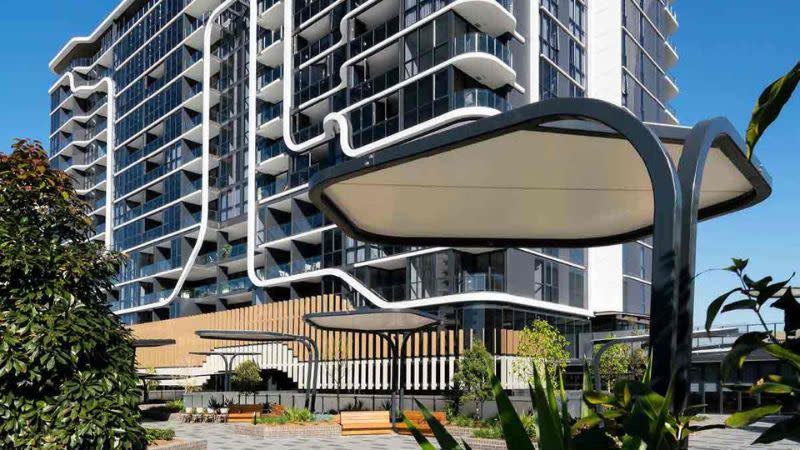Unbeatable Experience: Frontier Networks Marks Decade of Service

A lot can happen in a decade. For the tech sector, that is doubly true.
So to be marking 10 years in business in the sector is no mean feat, but that’s precisely what all-in-one network provider Frontier Networks is doing this year.
Starting out working within the senior living sector as an alternative network provider to the NBN, the statutory infrastructure provider (SIP) developed quick response systems and backups to cater for their customers’ and users’ specific needs.
Always keen to solve problems for its clients, another issue for the sector was soon identified and solved, according to managing director Paul Mula—personal emergency response systems.
And as the business continued to solidify its foundations, it became apparent to the firm and its clients and developers that bringing Frontier Networks in to projects from the beginning was far more efficient and cost-effective.
One of the first companies to introduce a backup system set up on 3G, Frontier Networks also introduced a fibre-to-the-home system which included MATV over glass. “We designed and developed a fibre solution that also incorporated the free-to-air and Foxtel RF signals over the fibre,” Mula said.
“Basically, we were collapsing networks onto the fibre and saving money for developers.”
As the business evolved, retirement and aged care owner, operator and manager Aveo became a key client.
Frontier Networks designed and built a white-label solution for Aveo, which has more than 90 retirement and aged care communities across Australia, providing network infrastructure, design and customer service that the developers could brand it as its own, allowing Aveo to derive additional revenue streams from the system.
As part of the process Frontier Networks created a customer experience team that has more than proven its worth: more than 90 per cent of all calls are answered in under 30 seconds and it has a customer satisfaction rate of more than 90 per cent.
The personal emergency response system became so successful it became its own business.
“As a result it freed up Frontier Networks to focus on being a telco infrastructure provider business, which gave us a lot more freedom to start to look at the residential market,” Mula said.
Frontier Networks’ next step was to obtain a security license, allowing it to move into building management so that it could collapse networks further and add building management components onto the same network, providing internet, phone, free-to-air and Foxtel services.

In a typical development, the internet connection, MATV and building management services would be on separate networks, creating a higher cost for the client during development and operation. Bringing together as one network delivers savings in cost and time.
In the residential sector, Frontier Networks is currently working with Azzura on its massive $2.3-billion 2000-unit Imperial Square project at Southport on the Gold Coast.
“We reviewed their design and came up with alternatives that saved Azzura over $1.5 million,” Mula said.
They are also working on a 65 townhouse project, demonstrating the breadth and depth of the experience and design of the company.
For build-to-rent clients Frontier Networks can demonstrate how a white-label solution will save money over solutions from other providers.
“As we’ve shown, our model can deliver a new revenue stream for developers,” Mula said.
“They can brand the telco themselves, and we will manage and operate it.”
And with building management services also provided, everything is on one network saving the developer money and time.
Developers can leverage Frontier Network’s capabilities in the design and construction phase as well as in tech service provision, again delivering savings.
The build–to-rent sector is among the company’s future focuses—its white-label solution is a good fit for that sector’s developers and residents, all backed by its customer experience team.
Mula also plans to look at how to leverage the company’s services for adjacent sectors such as student accommodation, affordable housing, gated estates and broadacre projects.
“If I was a developer and I was building these things, I would want the maximum flexibilty and revenue streams out of my developments,” Mula said.

Mula said that using Frontier Networks to provide the management and telecommunication services could allow landlords and developers to adapt as non-social housing and social housing residents moved in and out of a building.
This is achieved by moving them into the next available space and varying the pricing of services and rent accordingly rather than designating specific spaces as only for social housing residents.
This would ensure that the landlord or developer did not miss out on any income, waiting to move residents in.
Ten years ago, Mula carried out all of the procurement and installation himself, today he has a well-trained and professional team under the Frontier Networks umbrella and the company networks covers the east coast across 30 communities.
His plans over the years to build a high-performance team has paid off, giving the company agility and flexibility, and helping it achieve beyond its goals.
It is a company based on solid processes and systems, underpinned by solid team culture and dynamics.
The company’s core principles established a decade ago still guide the work—doing it right the first time, doing it fast, being a trusted partner and sticking to commitments.
“We want to do a good job the first time around,” Mula said.
“Not only because it matters to the client but also residents, and it is inefficient as a business to have to return to fix mistakes—this is a big focus for us.”
The 10 years in business have of course been a learning experience too, and Mula said that this also delivered his team an advantage.
But, he said, there was still more to achieve as many developers were unaware of the alternatives to the NBN and therefore, the savings available.
Mula said developers wanted partners who will deliver without surprises, who understand the technology deeply and can help them through the entire process, something that is at the core of Frontier Networks.
After a decade in a sector that has undergone big changes and will continue to do so, Frontier Network may be looking back on its 10 years, but its focus is fixed on the future, and helping its clients embrace it.
The Urban Developer is proud to partner with Frontier Networks to deliver this article to you. In doing so, we can continue to publish our daily news, information, insights and opinion to you, our valued readers.















